
BLAST to CHF Converter and calculator


BLAST is not available for trading on the Bitget Exchange, but can be held in custody on Bitget Wallet.
Conversion rates
Convert BLAST to CHF
Convert CHF to BLAST
BLAST to CHF chart
BLAST to CHF conversion data: Volatility and price changes of Blast in CHF
| Last 24 hours | Last 7 days | Last 30 days | Last 90 days | |
|---|---|---|---|---|
High | 0.002584 CHF | 0.002666 CHF | 0.002814 CHF | 0.004996 CHF |
Low | 0.002502 CHF | 0.002502 CHF | 0.001895 CHF | 0.001895 CHF |
Average | 0 CHF | 0 CHF | 0 CHF | 0 CHF |
Volatility | % | % | % | % |
Change | +2.27% | -0.32% | +1.29% | -48.11% |
Blast information
BLAST to CHF market statistics
Current BLAST to CHF exchange rate
Blast to Swiss Franc is falling this week.More info about Blast on Bitget
Swiss Franc information
About the Swiss Franc (CHF)
What Is the Swiss Franc (CHF)?
The Swiss Franc, with the international currency code CHF (Confoederatio Helvetica Franc), is the legal tender of Switzerland and the Principality of Liechtenstein. The term "Confoederatio Helvetica" is Latin for the Swiss Confederation, reflecting Switzerland's multilingual diversity, which includes German, French, Italian, and Romansh. The currency symbol for the Swiss Franc is either "Fr." or "SFr."
The Swiss Franc (CHF) is issued by the Swiss National Bank (SNB), which serves as the central bank of Switzerland. Established in 1907, the SNB is responsible for the country's monetary policy and for ensuring the stability of the national currency. Its primary objectives include maintaining price stability while taking into account the economic situation of the country. The Swiss National Bank is responsible for issuing banknotes, while coins are issued by the federal mint, Swissmint.
What Is the History of CHF?
The Swiss Franc (CHF), established in 1850, marked a pivotal moment in Switzerland's economic history, unifying a diverse array of cantonal and regional currencies under one national standard. This move was a direct consequence of the Swiss Federal Constitution of 1848, which centralized monetary authority and paved the way for a cohesive financial system. Before the Franc, Switzerland's monetary landscape was fragmented, with various regions issuing their own thalers, guilders, and other local coins, complicating trade and economic interactions. The introduction of the Swiss Franc, inspired by the French decimal system, streamlined transactions and bolstered economic stability, offering a uniform currency that facilitated commerce and integration within the burgeoning Swiss Confederation.
Over the years, the Swiss Franc has undergone several transformations, reflecting the shifting tides of economic policies and global standards. Initially pegged to the French Franc, it later transitioned through various gold and silver standards, mirroring the prevalent economic practices of different eras. The 20th century, particularly post-World War II, saw the Swiss Franc emerge as a symbol of stability and security, underpinned by Switzerland's neutrality during the wars, its resilient economy, and conservative monetary policies. The Franc's reputation as a safe-haven currency, sought after in times of global economic turmoil, is a testament to Switzerland's strong banking sector, low inflation rates, and sound fiscal management. Today, the Swiss Franc stands as one of the world's most stable currencies, embodying Switzerland's economic prudence and the effective stewardship of its financial institutions.
Notes and Coins of CHF
Swiss Franc banknotes and coins are renowned for their distinctive designs, which reflect Switzerland's cultural heritage and history. The banknotes are particularly notable for their artistic value and security features. Coins come in denominations of 5, 10, 20, and 50 centimes (cents), as well as 1, 2, and 5 Francs, while banknotes are issued in denominations of 10, 20, 50, 100, 200, and 1,000 Francs.
Why Is CHF Considered the Most Stable Currency?
The Swiss Franc (CHF) is widely recognized as one of the most stable currencies globally, a distinction that stems from a unique blend of Switzerland's economic strength and political stability. At the heart of this stability lies Switzerland's diversified and robust economy, characterized by key sectors like finance, pharmaceuticals, manufacturing, and technology. This economic diversity shields the country from sector-specific downturns, thereby lending remarkable stability to its currency. Complementing this is Switzerland's political landscape, marked by a longstanding tradition of neutrality and a stable, democratic government. These factors not only foster domestic economic resilience but also make Switzerland, and by extension the CHF, a safe haven for international investors, especially during global uncertainties.
The Swiss National Bank (SNB) plays a pivotal role in maintaining the CHF's stability through its conservative monetary policies aimed at keeping inflation low and ensuring price stability. Switzerland's banking system, renowned for its security and privacy, further bolsters this stability. Additionally, the country's low debt-to-GDP ratio reflects a strong fiscal discipline, enhancing investor confidence in the Swiss economy and its currency. The CHF's role as a safe-haven currency is cemented during times of global economic distress, when investors flock to it for its reliability. This demand, coupled with Switzerland's significant role in international trade and investment, particularly in commodities trading, further solidifies the Swiss Franc's position as a paragon of currency stability.
Popular conversions










Hot promotions
How to convert BLAST to CHF



Buy
Sell
| Merchants (trades/completion rate) | Price | Amount/limit Low to high | Payment methods | Zero fees Action |
|---|
Popular Blast Converter
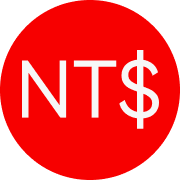

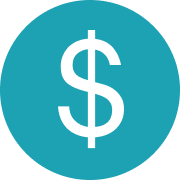
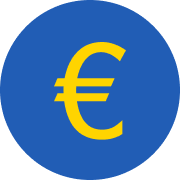
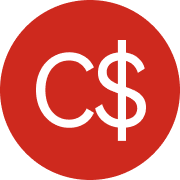

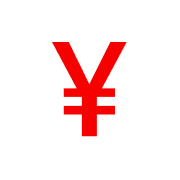

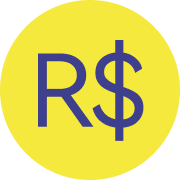
Popular cryptocurrencies to CHF










BLAST to CHF Conversion tables
| Amount | 21:16 today | 24 hours ago | 24h change |
|---|---|---|---|
| 0.5 BLAST | Fr0.001292 | Fr0.001263 | +2.27% |
| 1 BLAST | Fr0.002584 | Fr0.002527 | +2.27% |
| 5 BLAST | Fr0.01292 | Fr0.01263 | +2.27% |
| 10 BLAST | Fr0.02584 | Fr0.02527 | +2.27% |
| 50 BLAST | Fr0.1292 | Fr0.1263 | +2.27% |
| 100 BLAST | Fr0.2584 | Fr0.2527 | +2.27% |
| 500 BLAST | Fr1.29 | Fr1.26 | +2.27% |
| 1000 BLAST | Fr2.58 | Fr2.53 | +2.27% |
BLAST to CHF FAQ
What factors influence the conversion rate of BLAST to CHF?
Purchase other cryptocurrencies with similar market cap











Other crypto price predictions
 Bitcoin(BTC)Price predictions
Bitcoin(BTC)Price predictions Ethereum(ETH)Price predictions
Ethereum(ETH)Price predictions Celestia(TIA)Price predictions
Celestia(TIA)Price predictions Solana(SOL)Price predictions
Solana(SOL)Price predictions Worldcoin(WLD)Price predictions
Worldcoin(WLD)Price predictions Bittensor(TAO)Price predictions
Bittensor(TAO)Price predictions Dogecoin(DOGE)Price predictions
Dogecoin(DOGE)Price predictions PepeCoin(PEPECOIN)Price predictions
PepeCoin(PEPECOIN)Price predictions Pandora(PANDORA)Price predictions
Pandora(PANDORA)Price predictions ORDI(ORDI)Price predictions
ORDI(ORDI)Price predictionsDiscover more cryptocurrencies
Latest coin listings on Bitget











